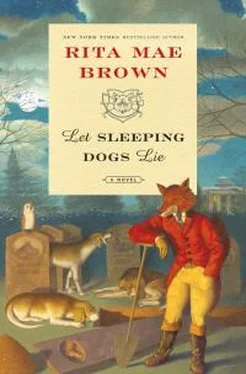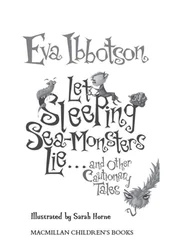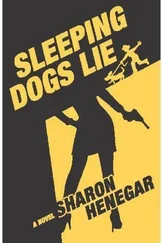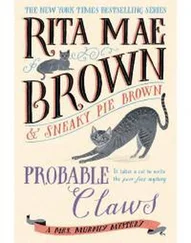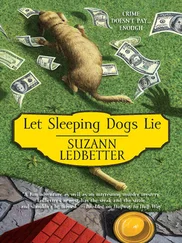He thought for a moment, looked down at the plaid rug, then up. “One of the biggest arguments I ever had with Penny was over just that. She showed me the papers on some appendix crosses, gave the history of the horse, which I knew, then compared them to some of the Thoroughbreds she saw.”
“She saw a lot of horses,” Betty added noncommittally. “More once you retired.”
Greg smiled. “She swore that a lot of Thoroughbreds were turning into hothouse flowers, the stamina and bone being bred right out of them. She wondered why the Jockey Club didn’t wise up and allow judicious outcrosses.” He frowned. “Penny, I said, ‘Never. Never. Never. Never!’ Well, we got into it. I said the problem wasn’t the Thoroughbred, it was the people who breed them. If someone knew what they were doing, they could and would breed a strong horse. I believe the Thoroughbred is the greatest athlete ever. She couldn’t believe I was that conservative; I think her word was conservative. Better than jerk, I suppose.”
Greg smiled at the memory, then continued, “But Penny was young, remember. She hadn’t seen many of the old-style Thoroughbreds, heavier cannon bone, you know what I’m saying. I laid into her about paper breeders, people who look at bloodlines but not the horses. That and the real problem is writing racetrack conditions so inferior horses can make a buck. There’s a race for every possible horse, especially inferior ones. She blew up at me. Whew!” He spiraled his forefinger up in the air.
“How long did it take before she spoke to you again?” Betty wondered aloud.
“Not long. She apologized for losing her temper. Penny had such a good heart. She cared so much for horses and it pained her to see so many leg injuries. For West Nile virus, stuff like that, we have vaccines, but fragile legs, there is no cure. That’s breeding,” Greg remarked with feeling.
“She did have a good heart.” Sister’s tone softened. “Greg, I have a feeling that her death is tied up in all this, even though there’s no way that woman would ever be party to anything shadowy.”
“No, never,” Greg rapidly agreed. “Penny was straight up.”
“And because of that, if she found wrongdoing, I think she would have blown the whistle,” Sister said.
“Yes, she would.” Greg looked at the mane hairs in the Ziploc. “Sister, I’ll get right on this. I won’t send it to the lab. I’ll drive it down.”
As he left, Sister knew he followed her line of thought, most especially what she didn’t say.
Betty, too, had a vague sense. “Jane, what are you getting into?”
“I don’t know.”
“Be careful. We have no idea why Penny was killed or who did it, obviously. But if you blunder into something, well—”
Sister lifted up another bridle. “They have to catch me first.”
“Don’t be a smart-ass.”
CHAPTER 26
Clytemnestra, mean as snakeshit, big as a house, glowered as the trailers parked at Foxglove Farm. The heifer’s son, Orestes, now larger than his mother, evidenced a much sweeter personality. Nonetheless, if hounds traveled through their back pastures, the field certainly did not. No one wants to be chased by a giant bovine.
As this was Saturday, March 1, skies overcast, mercury hanging at 48°F, the field overflowed.
Cindy Chandler, owner of Foxglove, kept her foxes happy. She had a mating pair under the old schoolhouse, a mile and a half from the main barn. Another male fox lived at the eastern edge of her property and occasionally Comet would travel over from Roughneck Farm.
An accomplished gardener, one with a long knowledge of plants, Foxglove delighted all who hunted there unless they offended Clytemnestra. The clapboard barn, the old clapboard schoolhouse, the clapboard house, all sparkled in good condition, impressive given the hard winter. No paint peeled.
Painted fencecoat black, three-board fences marked off intelligently laid-out pastures and paddocks. However, what always excited comment from newcomers were the two ponds at different levels, a small water wheel between them.
Today, ice rimmed both ponds. The raised walkway between the ponds had some icy spots but the water wheel—quite simple as opposed to the enormous one at Mill Ruins—still flowed, the wheel lazily turning.
Hounds promptly moved off at 10:00 A.M. Shaker included all the young entry in today’s draw. They’d been working all season, a couple here, a couple there, then two couple—until now, when all the youngsters could go.
With Clytemnestra at his back, glaring while she chewed expensive hay, Shaker prudently cast in the opposite direction from the brooding beast.
Near the front of First Flight, Phil looked over his shoulder. “That has to be the biggest heifer I have ever seen. Each year she’s larger.”
“Why does Cindy waste good hay on her?” complained Mercer. “Cows have four stomachs. She doesn’t need the pricey stuff,” he quipped.
“Oh, yes, she does,” said Cindy, riding behind Mercer.
A flush over Mercer’s face indicated that once again he had opened his mouth before looking around or thinking. Fortunately, Cindy possessed both charm and a great sense of humor. She wasn’t the least offended by his criticism.
“Sorry, Cindy,” Mercer apologized instantly. “I didn’t realize you were back there.”
“If he’d known, he might have babbled even more,” Phil tormented Mercer.
“Well, gentlemen, if Clytemnestra eats four-star hay, she behaves herself. If not, she will smash right through a fence. Actually, I believe she could take out the barn if she’d a mind to.”
Up front, Sister heard them chattering, as well as others. She loathed a chatty field but hounds had not yet been cast, spirits were high, why squelch them? If the blab continued once hounds were working, well, that’s different.
“Lieu in.” Shaker put the pack into a thin line of woods below the ponds, using the old Norman term now about one thousand years old.
This woods expanded to the north, providing good hiding places for foxes, bobcats, deer, raccoons, and the occasional weasel.
This morning, red-tailed hawks, red-shouldered hawks, and broad-tailed hawks sat motionless in treetops. All of them hoped hounds would scare up voles, moles, mice, and other little rodents. Perhaps those raptors were the original foodies.
Riding with Sybil today, Tootie trotted at woods’ edge as they headed due east. If the pack had turned right, they would be heading south, finally running into Soldier Road. Foxglove Farm boundaries were more natural than man-made, with the exception of Soldier Road. Natural boundaries can be easier to hunt than man-made ones and Shaker was making the most of it.
Hounds worked the edge of the woods; a few, noses down, walked along the pasture by the woods while the bulk of the pack moved through the woods. For Sister, this was a complete cast. She wanted her hounds fanning out. Other Masters and huntsmen did not. Everyone had their own ways and their own reasons. Sister wanted her hounds to do what was called “Make good the ground.” She wanted as much ground studied by those superb hound noses as possible.
The ponds—now above the field, to the right—lowered the temperature a bit as they all moved alongside them.
Older Asa, out today for his once-a-week hunt, widened his search heading to the bottom of the ponds’ high banks.
Hounds, horses, and people really do become wiser with age and Asa, feeling the slight temperature drop, also could smell more moisture below those banks. He stopped, inhaled deeply, moved a few paces, inhaled again. His tail slowly waved to and fro, then that stern picked up speed.
“Hot. A hot line!” With that, he ran straight up until he was now level with the top pond.
Читать дальше
